The Chinese consulate in Adelaide sums up how Paul Keating is wrong on China | David Penberthy
Everyone knows this massive, iron-fenced Chinese building in suburban Adelaide is for spying – and it’s proof Paul Keating is wrong, writes David Penberthy.
Opinion
Don't miss out on the headlines from Opinion. Followed categories will be added to My News.
A couple of years ago, I spent several interesting days doing a story about the new Chinese consulate in the affluent Adelaide suburb of Joslin.
Joslin is the gold-plated, chambray-clad, RM Williams-booted heart of the South Australian upper-middle class. Think a suburb such as Brighton in Melbourne or Paddington in Sydney, only with really big blocks, beautiful cottage gardens in front of grand old multi-room Federation bungalows with cellars, return verandahs, Porsche Cayennes in the gravel driveway.
Joslin is also home to a staggeringly enormous Chinese consulate.
It is so big it looks like it should really be in Yarralumla in Canberra’s embassy district. It is the equivalent of around a dozen quarter acre blocks, surrounded with wire, surveillance cameras and huge electronic security gates. Yet here it is, plonked in the midst of Adelaide’s leafy east, vastly bigger than the Italian and Greek consulates which historically served much larger communities, with more than a dozen staff to process visas for a few thousand overseas students, none of whom were here for the past three years anyway due to Covid.
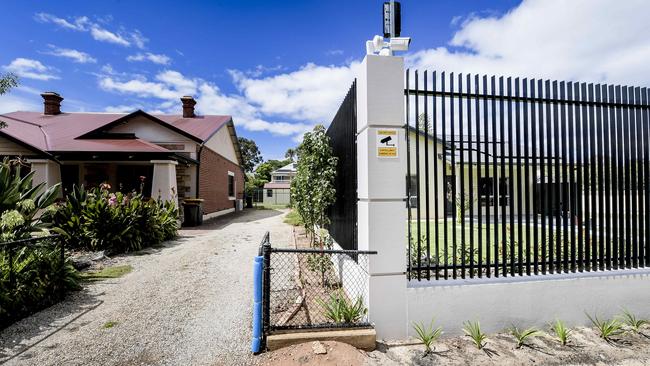
Many people think the consulate is a surveillance operation for Beijing in the midst of Australia’s defence and space capital. By “many people” I mean absolutely everyone I have ever discussed it with. That’s everyone who is an out-and-proud China critic, and everyone I know in politics, Labor and Liberal, who privately rolls their eyes and says of course it’s used for spying, but would never be so tactless or inflammatory to say so in public.
I am not overly perturbed that Beijing might be spying on us. It does point to a degree of guilelessness and naivety on the part of former governments who (in our happier recent past) decided that China was such a close friend that the land should be available for them to build this diplomatic Taj Mahal in the middle of suburbia. They pretty much handed them a spying base on a plate. But having said that, I am sure that we also spy on China too, and would be disappointed if we didn’t.
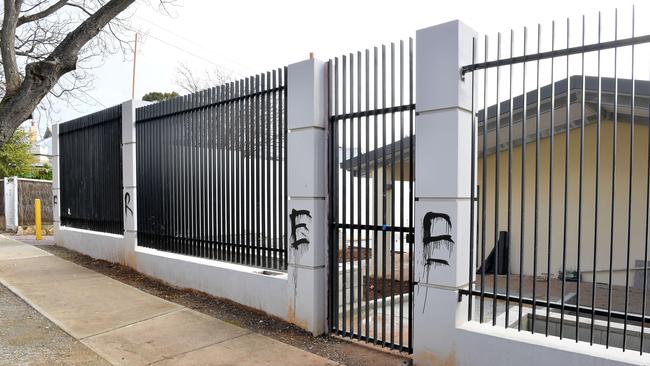
The locals in Joslin have a much more unique perspective on it, which in a neighbourly sense provided an ideal parable to the tensions between Australia and China, which were all unfolding around the time of my visit. The backdrop was Beijing had just started belting our economy (especially in my home state) with tariffs on wine, grain, lobsters, beef, all because we had the temerity to suggest that it might be worth having a bit of a look at the origins of a pandemic that had destroyed the global economy and killed almost seven million people.
The consensus among the Joslin residents was the Chinese consulate had acted as a complete law unto itself as it went about the construction process, which under the Vienna protocols governing embassies gave them much more leeway than a normal development application. They used their own workers and had power tools going early on Sundays. They knocked down the fence of a neighbouring home and the owners only discovered it had happened when they came home and found their dog in the street.
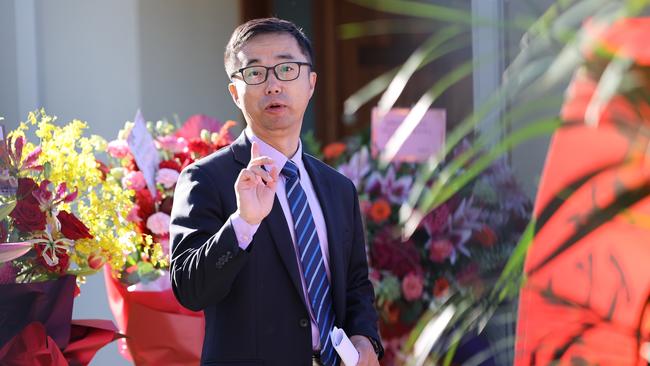
The fence was replaced with a 3m tall grey security wall, on which the family has painted a mural to make it less imposing. When protesters daubed the words “Free Tibet” on an external wall, the consulate installed a row of new security cameras that face directly into a row of semi-detached apartments where a group of pensioners live.
Covering this story in Joslin was a vox pop in reverse. Normally in a vox pop, when journalists like me approach random members of the public on an issue, 95 per cent of them tell us to rack off. On this story, people were literally chasing me down the street to give me quotes. I was invited into several homes for coffee, with people sharing months of correspondence to local, state and federal government, all of which elicited the same reply: Under the law the consulate is free to act as it likes.
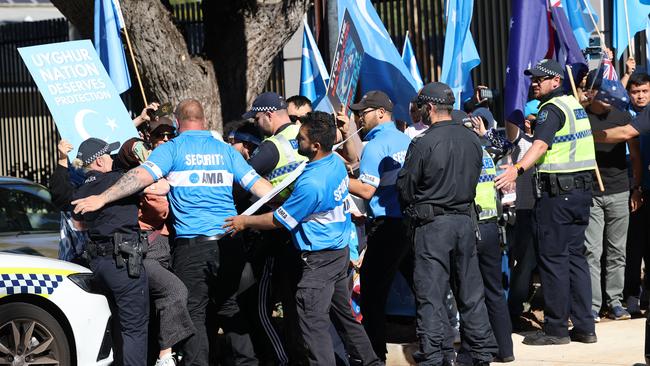
I had a really amazing exchange with one of the consular staff while I was there one day. While interviewing some of the neighbours and taking notes on my pad, a young Chinese guy who was a real true believer came out from the consulate and somewhat tersely asked me what I was doing. I explained I was a journalist doing a story about concerns of locals over the consulate and that I would be seeking comment from the consul. I asked if I could interview him. He said no. Then he asked: “Can you tell me who gave you permission to be here?”
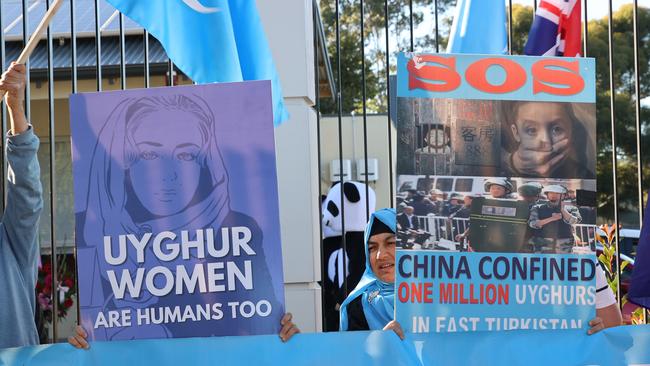
Huh? For me, this was a does-not-compute moment.
Who gave me permission to stand on an Australian street interviewing Australian residents for a story for an Australian newspaper?
“I don’t need permission to do this,” I told him. “Permission from who?”
“Permission from us,” he replied. “Or permission from the police.”
This exchange summed up the difference between what a free society and an authoritarian one looks like. It’s not just a system of government, but a way of life, a mindset.
I am a huge fan of Paul Keating. But seeing him this week was like watching an old band you loved who had reformed for a world tour and realising they were now rubbish. The United States has historically been far from perfect in a foreign policy sense.
As a republican I would sever our constitutional ties with the Poms in a jiffy. But China? Surely one of the defining political moments of our generation was the Tiananmen Square massacre, a subject that is expunged from the internet and banned in schools by Beijing.
Let alone the Uighurs, unprovoked job-wrecking trade wars, sabre-rattling towards independent Taiwan … and a mindset that will see a group of Australians talking to each other on Australian soil and ask them just who gave them permission to do such an outrageous thing.





